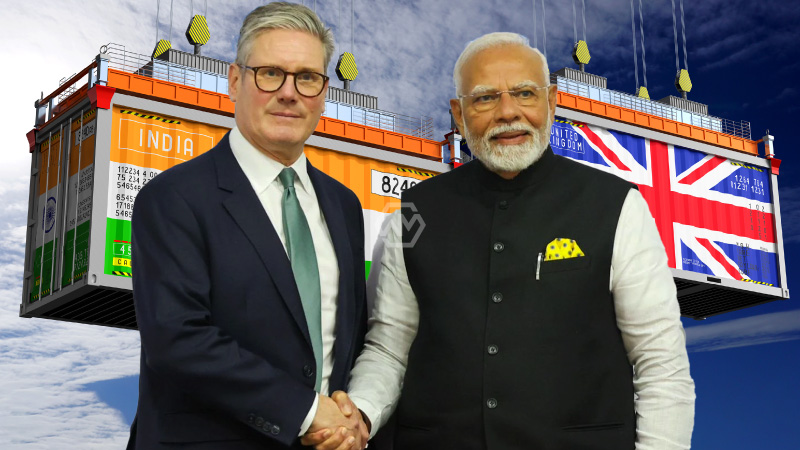- India and the UK dropped demands on post-study work visas and legal services to finalize the FTA.
- The deal includes significant tariff reductions, benefiting key sectors like textiles, whisky, and automotive.
- The agreement is expected to boost the UK economy by GBP 4.8 billion annually by 2040.
India and the UK have concluded a landmark free trade agreement after both sides dropped politically sensitive demands — India gave up its push for expanded post-study work rights for Indian students, while the UK withdrew its call to liberalize India’s legal services sector.
The agreement, finalized after talks between Commerce Minister Piyush Goyal and UK Trade Secretary Jonathan Reynolds, is projected to add GBP 4.8 billion annually to the UK economy by 2040.
Strategic Trade Deal: India and UK Drop Key Demands to Seal Agreement
The free trade agreement between India and the UK represents a significant milestone in their economic relationship, particularly after the suspension of talks due to general elections earlier in the year. Both countries made strategic concessions, with India stepping back from its demand for post-study work visas and the UK retracting its push for liberalizing India’s legal services sector.
The agreement is expected to provide substantial economic benefits to both countries, including reduced tariffs on a range of goods, from medical devices to Scotch whisky. This is seen as a boost for Indian exporters, who will gain zero-duty access to the UK market for products like textiles, chemicals, and processed foods.
Tariff reductions are a key highlight, with duties on Scotch whisky cut from 150% to 75% and automotive tariffs reduced from 100% to 10% under a quota system. Additionally, the UK has pledged mobility access for up to 1,800 professionals annually in sectors like IT and creative arts, a win for India’s service sector.
Indian industry leaders have hailed the deal as a transformative milestone, particularly for the textile and apparel sectors, which are poised to gain substantial export advantages. Meanwhile, the UK views the FTA as a crucial step in strengthening its post-Brexit trade landscape, potentially setting the stage for future deals with other major economies.
The India-UK free trade agreement marks a pivotal moment in bilateral trade relations, balancing strategic concessions with economic gains for both nations.
“Both countries have respected each other’s sensitivities. Post-study work visas were politically sensitive for the UK as legal services were for India,” — Official source quoted by PTI.



